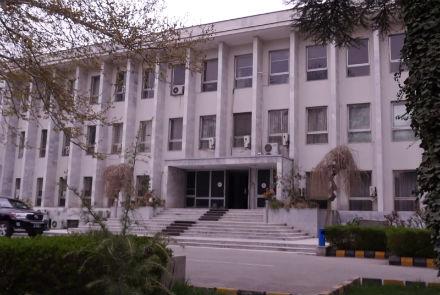Afghanistan’s Ministry of Foreign Affairs (MoFA) on Tuesday welcomed the intra-Afghan conference in Doha and said the joint resolution of the meeting is a step forward for bringing peace and stability in the country.
Deputy Foreign Minister Idris Zaman talking at a gathering entitled “National Peace Symposium” in Kabul on Tuesday said Doha resolution contains some good points and that the Afghan government is trying to form an inclusive negotiating team which will enter the talks with the Taliban in the future.
“The intra-Afghan conference which was held between the Taliban and a number of Afghans in Doha was wrapped up yesterday by issuing a resolution. There are positive points in the resolution that we welcome them,” said Zaman.
Zaman’s remarks come after on Monday a delegation of Afghan politicians and members of Taliban concluded a two-day meeting in Doha and issued a resolution about the Afghan war and peace.
Zaman said Afghan security and defense forces will continue suppressing the Taliban fighters until the group enters direct talks with the government.
He added that the government and its partners are working to create regional and international consensus on peace to find a peaceful solution to the problem.
“Reaching a peace agreement with the Taliban is a key component of reduction of violence. We consider the US commitment to a political solution to be credible and are considering well to build the necessary international consensus with all our partners on peace. Breakthroughs, however, require regional consensus on peace and addressing the Taliban’s interdependencies with their supporters,” Zaman said.
He said President Ashraf Ghani’s recent visit to Islamabad was effective adding that such contacts will assist in decreasing the level of violence and starting direct talks with the Taliban.
Addressing the same event, Mohammad Ehsan Zia, Country Director for Afghanistan programs of United States Institute of Peace also labeled the Doha talks a step forward.
“We are optimistic about the resolution. It is a step forward toward reaching an agreement, removing misunderstanding and trust building for the future Afghan peace talks,” said Zia.
Former president Hamid Karzai in a press release welcomed the intra-Afghan talks in Doha and emphasized for negotiations in the future.
Senate Speaker Fazl Hadi Muslimyar, however, sharply criticized Doha conference participants and questioned them that how they are going to interpret the attacks that take the lives of hundreds of the people every day.
“What answer do they have about the armed forces? Hundreds of people are killed here every day. How are they going to interpret this?” he asked.
This comes after more than 60 delegates from Kabul met with 17 members of the Taliban at Intra-Afghan Dialogue Conference on Peace in Doha where they agreed to reduce violence by stopping attacks on “religious centers, schools, hospitals, educational centers, bazaars, water dams and workplaces”.

